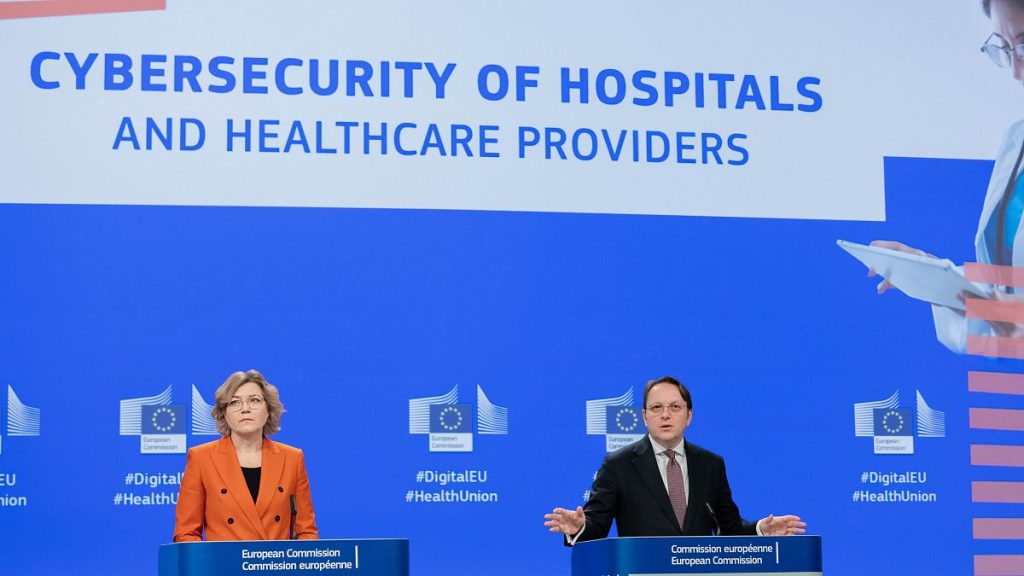The European healthcare sector is facing a growing cybersecurity crisis, fueled by a surge in ransomware attacks that exploit the sensitive nature of patient data and the increasing reliance on digital systems. Recognizing the severity of this threat, the European Commission has unveiled a comprehensive action plan designed to bolster the cyber defenses of hospitals, clinics, and other healthcare providers. This initiative aims to equip the sector with the necessary tools and resources to prevent, detect, respond to, and recover from cyberattacks, ultimately safeguarding patient safety and maintaining public trust in the digital transformation of healthcare.
The action plan is built upon four fundamental pillars: prevention, detection, response and recovery, and deterrence. The prevention aspect focuses on proactively strengthening cybersecurity infrastructure and raising awareness of potential threats. This includes promoting best practices, providing training for healthcare professionals, and fostering a culture of cybersecurity within the sector. The detection component emphasizes the importance of early identification of cyberattacks through robust monitoring systems and incident reporting mechanisms. Swift and effective response and recovery are crucial for minimizing the impact of any successful attacks. This involves establishing clear protocols for incident management, data backup and restoration, and communication with affected individuals. Finally, deterrence aims to discourage cybercriminals by increasing the risk and cost associated with targeting healthcare entities. This can be achieved through international cooperation, law enforcement action, and the development of robust legal frameworks.
Central to the action plan’s implementation is the establishment of a new European Cybersecurity Support Centre for the healthcare sector, operating under the umbrella of the EU Agency for Cybersecurity (ENISA). This dedicated centre will serve as a hub for expertise, resources, and coordination, providing practical support and guidance to healthcare providers across the EU. Furthermore, a Health Cybersecurity Advisory Board will be created to offer specialized assistance to organizations facing ransomware demands and to develop rapid response services to mitigate the impact of such attacks. This board will play a vital role in sharing knowledge, promoting best practices, and ensuring a coordinated approach to cybersecurity across the healthcare sector.
The urgency of this action plan is underscored by the alarming statistics revealed in ENISA’s recent analysis of the cyber threat landscape in healthcare. The report highlighted a significant increase in cyberattacks targeting healthcare providers, particularly during and after the COVID-19 pandemic. Between January 2021 and March 2023, a staggering number of incidents were reported, with hospitals and other healthcare facilities bearing the brunt of the attacks. These attacks not only disrupt critical services and jeopardize patient safety but also erode public trust in the digitalization of healthcare, hindering the sector’s ability to leverage the full potential of innovative technologies.
The European Commission’s initiative aims to build upon existing legal frameworks and initiatives related to cybersecurity and data protection. These include the NIS2 Directive, the Cybersecurity Act, the Medical Devices Regulation, and the European Health Data Space (EHDS). The EHDS, in particular, plays a complementary role by establishing a framework for the secure and interoperable exchange of health data across the EU. However, the effective implementation of these regulations faces several challenges, including delays in member states’ adoption of the NIS2 Directive and ongoing revisions to the Medical Devices Regulation. Addressing these implementation hurdles is critical to ensuring a cohesive and robust cybersecurity landscape for the healthcare sector.
The success of the action plan hinges on collaboration and coordination at multiple levels. This includes cooperation between EU member states, engagement with healthcare providers and industry stakeholders, and international partnerships to combat cross-border cyber threats. The Commission recognizes that cybersecurity is not solely a technical issue but also requires a cultural shift within the healthcare sector. By fostering a culture of cybersecurity awareness and promoting the adoption of best practices, the action plan aims to empower healthcare organizations to effectively protect themselves against the evolving cyber threat landscape. Ultimately, the goal is to ensure that the digital transformation of healthcare enhances patient care and strengthens public trust, rather than becoming a source of vulnerability and risk.

